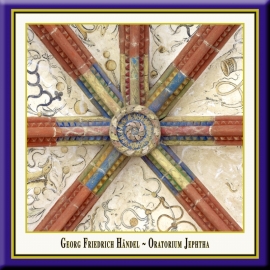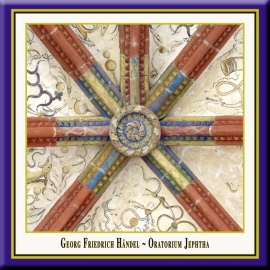Annelie Sophie Müller

Mezzo-Soprano
 Annelie Sophie Müller was born in Freiburg i. Brsg., Germany. At very young age she had already learned to play the violin, the piano, percussion and to dance ballet. She started to take her first singing lessons when she was 19. She studied Vocal, Interpretation of Songs, and Pedagogical Music (main instrument piano) in Stuttgart, Germany. Annelie Sophie Müller got an invitation in 2010 from the Komische Oper Berlin to join the Opera Studio, therefore she finished her studies in this year. She received further musical education through masterclasses with Ks. Brigitte Fassbaender, Ks. Christa Ludwig, Thomas Hampson and Ingeborg Danz, which had influenced her intensely. Now her current teacher is Danish Professor Susanna Eken. Annelie Sophie Müller has performed with conductors such as Maurizio Barbacini, Alexander Vedernikov, Henrik Nánási, Konrad Junghänel, Axel Kober and Patrick Lange. She has also worked with stage directors such as Barrie Kosky, Calixto Bieito and Andreas Homoki. For the part of Pe- Ki, her first big part on stage, Annelie Sophie Müller received a nomination for "best upcoming singer 2012" in the journal "Opernwelt". In 2010 at the International Song Competition of the International Hugo- Wolf- Academie in Stuttgart, Germany, she was given first prize. Annelie Sophie Müller received a scholarship from the Baden- Württemberg- Stipendium and a scholarship from the Richard-Wagner-Organisation Germany. She also took part at the Academie Festival d'Aix-en-Provence in 2011 and she was in the Academy of Heidelberger Frühling in 2012. As an interpret of art songs Annelie Sophie Müller gave several concerts at famous festivals.
Annelie Sophie Müller was born in Freiburg i. Brsg., Germany. At very young age she had already learned to play the violin, the piano, percussion and to dance ballet. She started to take her first singing lessons when she was 19. She studied Vocal, Interpretation of Songs, and Pedagogical Music (main instrument piano) in Stuttgart, Germany. Annelie Sophie Müller got an invitation in 2010 from the Komische Oper Berlin to join the Opera Studio, therefore she finished her studies in this year. She received further musical education through masterclasses with Ks. Brigitte Fassbaender, Ks. Christa Ludwig, Thomas Hampson and Ingeborg Danz, which had influenced her intensely. Now her current teacher is Danish Professor Susanna Eken. Annelie Sophie Müller has performed with conductors such as Maurizio Barbacini, Alexander Vedernikov, Henrik Nánási, Konrad Junghänel, Axel Kober and Patrick Lange. She has also worked with stage directors such as Barrie Kosky, Calixto Bieito and Andreas Homoki. For the part of Pe- Ki, her first big part on stage, Annelie Sophie Müller received a nomination for "best upcoming singer 2012" in the journal "Opernwelt". In 2010 at the International Song Competition of the International Hugo- Wolf- Academie in Stuttgart, Germany, she was given first prize. Annelie Sophie Müller received a scholarship from the Baden- Württemberg- Stipendium and a scholarship from the Richard-Wagner-Organisation Germany. She also took part at the Academie Festival d'Aix-en-Provence in 2011 and she was in the Academy of Heidelberger Frühling in 2012. As an interpret of art songs Annelie Sophie Müller gave several concerts at famous festivals.





